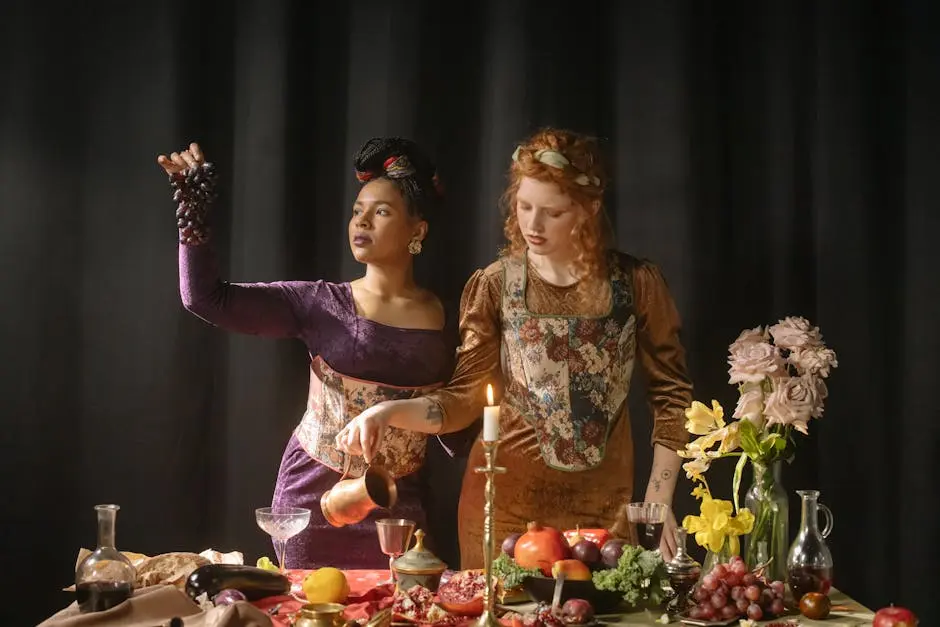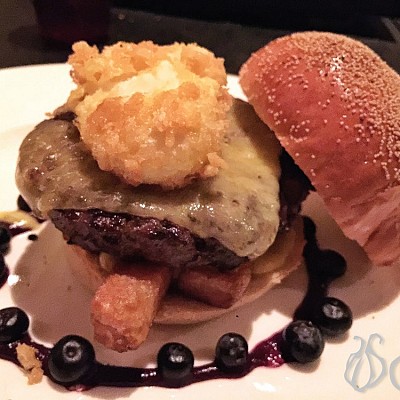Gourmet experiences are not just about food; they can serve as a powerful tool for preserving and promoting heritage. By intertwining culinary practices with cultural narratives, we can create a deeper appreciation for our shared history. In this blog, we'll explore how gourmet experiences contribute to heritage preservation and how they foster connections between generations.
Understanding the Link Between Food and Heritage
Food is a fundamental part of any culture. From traditional recipes passed down through generations to the ingredients that define a region, our culinary practices tell stories about who we are and where we come from.
Every dish is a chapter in a larger narrative. Consider the role of spices in a heritage meal; they are not just flavor enhancers but reminders of historical trade routes and cultural exchanges. By savoring these dishes, we not only enjoy rich flavors but also pay homage to the journeys our ancestors undertook.
Furthermore, food connects us to our childhood memories and family traditions. A simple recipe can evoke nostalgia, reminding us of gatherings around the dinner table or festive celebrations. This emotional connection underscores the importance of food in reflecting our cultural identity.
Gourmet Experiences That Highlight Local Traditions
Many gourmet experiences focus on local ingredients and cooking techniques that reflect the heritage of a place. For instance, farm-to-table dining or cooking classes that teach traditional recipes engage participants in understanding and appreciating their cultural roots.
These experiences often invite guests to interact directly with local producers, deepening their appreciation for the food they consume. Imagine learning how to craft a classic dish from a resident chef, who has mastered the art over decades! This not only enriches the dining experience but also strengthens the community bonds.
Moreover, gourmet tours that feature local markets expose visitors to the ingredients that are intrinsic to a region’s culinary fabric. Observing vibrant produce or unique spices can ignite curiosity and promote a desire to preserve these culinary customs for future generations.
The Role of Culinary Tourism in Heritage Preservation
Culinary tourism attracts travelers eager to explore authentic food experiences. By supporting local chefs, markets, and restaurants, this tourism helps preserve culinary traditions and encourages the sharing of knowledge between communities.
Such tourism creates an economic incentive to maintain traditional cooking practices and locally sourced ingredients. When tourists engage with the culinary heritage of a location, they often leave with a deeper understanding of the culture, fostering respect and appreciation.
As culinary tourism evolves, it plays a critical role in ensuring that our culinary heritage is celebrated, not only enjoyed. The unique stories behind each dish become a way for locals to share their history, connecting the past with present-day culinary arts.
Creating Community Connections Through Food
Gourmet experiences often foster community engagement. Events like food festivals, farm dinners, and heritage cooking workshops bring people together, allowing them to share stories and strengthen their connections to both the food and each other.
These gatherings serve as a platform for individuals to learn not just about food, but also about cultural narratives woven into each dish. For example, a family recipe shared at a local potluck can create an opportunity for storytelling, bridging the generational gap.
The sense of community built around shared culinary practices cultivates friendships and fosters a deeper understanding of diverse cultures. It is through these connections that one realizes the universal language of food and its power to unite.
Innovative Approaches to Combining Modernity with Tradition
Chefs are increasingly blending modern culinary techniques with traditional methods, creating innovative dishes that honor the past while appealing to contemporary tastes. This fusion not only enhances the dining experience but also keeps culinary heritage alive in exciting ways.
The experimentation with new technology in kitchens allows for reimagined versions of classic dishes. For instance, sous-vide cooking techniques, which ensure precision and retain flavors, can be used to refine age-old recipes without losing their essence.
Moreover, this culinary innovation invites both chefs and diners to embrace a dialogue between history and modernity, prompting discussions on how evolution in cooking can still respect tradition. It creates a delicious narrative that respects the past while looking toward the future.
Celebrating Heritage Through Culinary Delights
In summary, gourmet experiences offer a unique and engaging way to celebrate and preserve our cultural heritage. They create a bridge between the culinary arts and our history, allowing us to savor the flavors of the past while nurturing a sense of identity and community. By embracing these experiences, we can continue to protect and promote the traditions that enrich our lives.







































